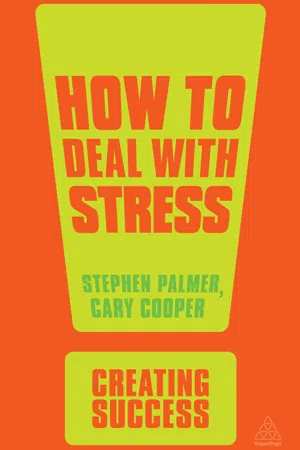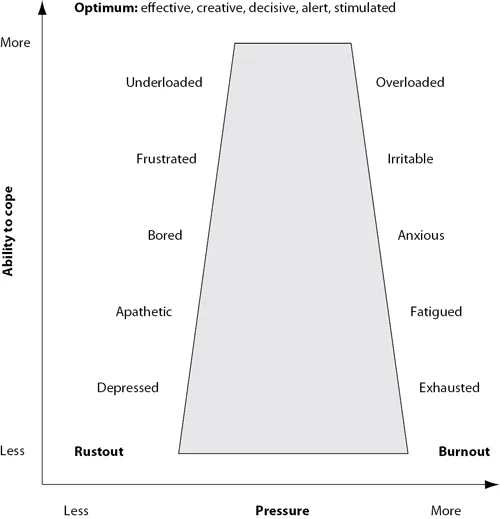
- 224 pages
- English
- ePUB (mobile friendly)
- Available on iOS & Android
How to Deal with Stress
About this book
Straightforward, easy to read and practical, How to Deal with Stress, 3rd edition will put you back in charge of your life. Written by two internationally-recognized experts in the field of stress management, Cooper and Palmer provide a thorough understanding of the psychological causes of stress and the resulting physical effects, enabling you to build your own personal plan, improve well-being and enhance your performance at work.
Full of insight and examples from real people, a brand new chapter provides a practical worksheet to help you develop your problem solving skills and reduce stress day-to-day. Crammed full of techniques on how to deal with stressed employees and colleagues, How to Deal with Stress will help you achieve the ultimate long term goal.
Tools to learn more effectively

Saving Books

Keyword Search

Annotating Text

Listen to it instead
Information

Table of contents
- Cover
- Title page
- Imprint
- Dedication
- Table of contents
- Acknowledgements
- Introduction
- 1. What is stress?
- 2. A working model of stress, coping and resilience
- 3. Changing your thinking
- 4. Changing your imagery
- 5. Changing your behaviour
- 6. Improving your physical health to help you conquer stress
- 7. From problems to solutions
- 8. Dealing with work-related stress
- 9. Stress self-audit
- 10. Developing your own action plan
- Appendix
- References and bibliography
- Useful organizations
- Creating Success series
- Full imprint
Frequently asked questions
- Essential is ideal for learners and professionals who enjoy exploring a wide range of subjects. Access the Essential Library with 800,000+ trusted titles and best-sellers across business, personal growth, and the humanities. Includes unlimited reading time and Standard Read Aloud voice.
- Complete: Perfect for advanced learners and researchers needing full, unrestricted access. Unlock 1.4M+ books across hundreds of subjects, including academic and specialized titles. The Complete Plan also includes advanced features like Premium Read Aloud and Research Assistant.
Please note we cannot support devices running on iOS 13 and Android 7 or earlier. Learn more about using the app